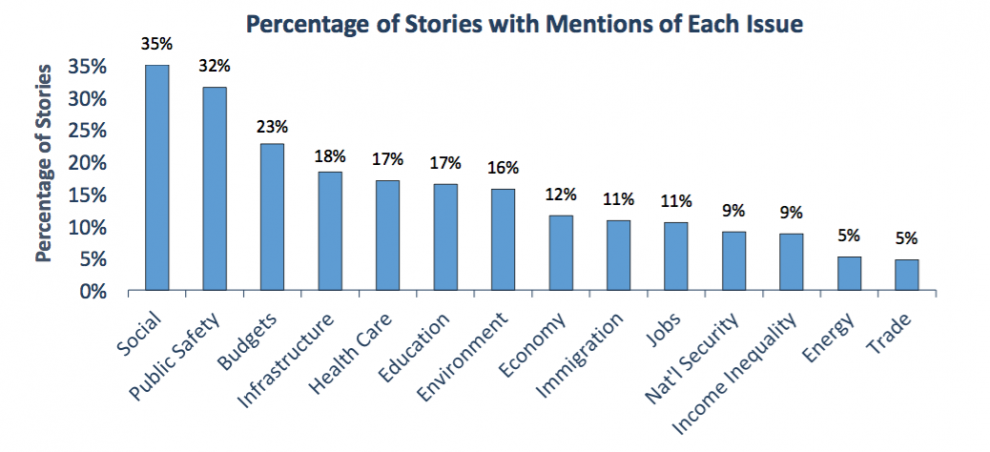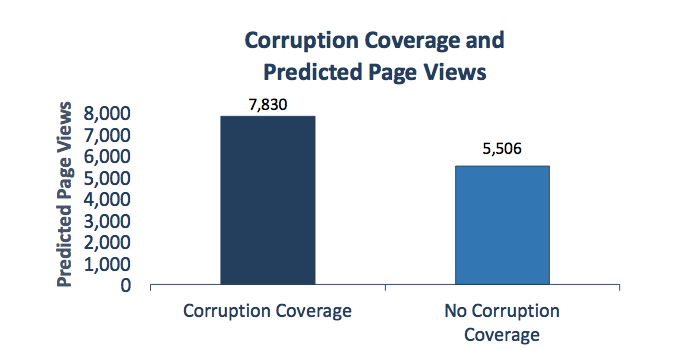On average, 2.5 issues were mentioned in a news story published 20 to 32 days before Election Day in November, compared to 1.8 issues mentioned in news stories published zero to nine days before Election Day, based on the report’s analysis of 705 election-related — but non-presidential campaign — stories pulled from nine news websites across six states. (The states: California, Florida, Idaho, Pennsylvania, Texas, and Washington.) Social issues such as abortion or rights for LGBTQ people were heavily covered, followed by issues around public safety (e.g., gun control or crime). The issue given least attention in local outlets’ down-ballot coverage was, perhaps unsurprisingly, trade:

Notably, the timeframe covered in this report includes the week of the Trump Access Hollywood tape. The authors write:
Examining the coverage, local news outlets’ coverage of social issues seemed to be influenced by what occurred at the top of the ballot with the presidential race. Coverage of then-candidate Donald Trump’s treatment of women — including the disclosure of the Access Hollywood tape — became an issue for Republican candidates down the ballot. News articles mentioning U.S. House and Senate races discussed how candidates for these offices were responding to the Trump tape and their positions on issues of women’s rights and sexual harassment. The national conversation became a prominent topic of debate down the ballot.
Scandal and corruption coverage was common in local outlets: 22 percent of articles analyzed in the report focused on “accusations, investigations, or criminal charges leveled against non-presidential candidates for federal, state, or local office.” News stories about campaign or government corruption garnered more pageviews and social referrals than stories that didn’t touch on these topics at all (clickbait-y headlines in local election coverage, though, were not found to be helpful in that regard).


Other findings:
— A missed opportunity: Fact-checking was largely absent in local election articles: 2 percent of the stories analyzed in the report included checks on claims made by candidates and their campaigns.
— Local news election stories relied heavily on “horserace” coverage, with “frontrunners” and “underdogs.” More than half the stories analyzed (54 percent) referenced that narrative.
— The campaign stories that mentioned the horserace, campaign fundraising and spending, and public opinion received predictably fewer page views and social referrals than articles that didn’t.
The full report is available here.